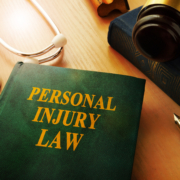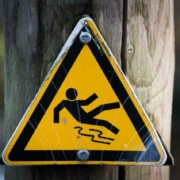Over the past few years, the Florida Legislature has made significant changes to property insurance rules, often impacting how you can fight your insurance company.
The goal of these rules was to stop the massive increases in property insurance we all have seen recently. It is still up to debate as to whether these new rules will have the desired effect, but what it certainly does is reinforce that you need to be prepared in advance for any claims you might have related to hurricanes.
It is more difficult than ever to fight your insurance company.
As many people know, damage during a hurricane is different than damage during a strong afternoon thunderstorm or a winter hail storm. There are special coverages, special deductibles and more. This also does not include flood insurance, which can also be a significant issue during hurricanes.
The current forecast for Florida is a very active hurricane season and all parts of Florida can receive damage from a tropical system, so it is critical that you take action now – before the storm is close – to make sure you are prepared to get the largest payout possible for your hurricane damage.
The attorneys at The Orlando Law Group have a long history of working with clients on their hurricane, windstorm and flood claims that come with a hurricane strike. If you live in Orlando, Winter Garden, Altamonte Springs, Kissimmee or anywhere throughout Central Florida, The Orlando Law Group is ready to help you.
Check Your Coverages
Perhaps the most important part of being able to recover from hurricane damage is to make sure you have the proper coverage for your property and your possessions.
It is confusing to figure that out.
For instance, the Florida Chief Financial Officer, which regulates insurance companies, put out a 12-page booklet just about how the hurricane deductible on insurance works.
Even that is not an easy read. For instance, here is what that guide says to make sure the insurance company is correctly applying a deductible:
To determine if the company is applying the correct amount for the hurricane deductible, you need to know the following:
- The effective date of your policy.
- The amount of Coverage A (Dwelling Coverage) that is listed on your policy’s declarations page.
- The hurricane deductible percentage that is listed on your policy’s declarations page.
- Does the declarations page disclose the possibility that the Inflation Guard Endorsement may cause the hurricane deductible to be higher than indicated?
- If yes, what is the percentage of the Inflation Guard that is listed on your policy’s declarations page?
Sounds easy, right?
That’s why we suggest your review is with an attorney at The Orlando Law Group. There are so many ways insurance companies will find a way to get out of paying your claim, that it is important to eliminate those loopholes as quickly as possible.
And remember, you cannot make any changes to a policy as a storm approaches your home. You must do this long before the first storm is here. To be adequately prepared, you need to come in as soon as possible.
The earliest a hurricane has hit Florida officially was June 9. Don’t wait until the height of hurricane season for this review.
Perform an inventory of your property and possessions!
Another one of the key aspects of protecting your home and possessions is to have a complete inventory of all your possessions and your property.
At a very minimum, you will need to take a video of your house, both inside and outside. This shows the property before it was affected by a hurricane and gives you physical evidence of most of your possessions.
For some things, you are going to want to take a step further to provide evidence of your possessions, particularly your valuables.
Let’s say you have a set of quilts that have been passed down to you through generations. They are stored in a closet, safe and secure as a few were made in the 1800s by your great, great grandmother.
It’s very valuable, but you never took the time to appraise them. Unfortunately, a flood caused by a hurricane ruined the quilts. Without any sort of value attached to them before the storm, they could be classified as blankets, valued at only a couple of dollars.
Without taking the time to work on your inventory, you could be faced with a loss of thousands of dollars for your most prized possessions. But, with documentation, your claim will be much easier to process and lower the cost of fighting for a fair payment from insurance.
Safe storage of documents is essential
All of the prework that you have done before a hurricane will be for nothing if you don’t keep your documents safe. That doesn’t include keeping the video on your phone or on your hard drive.
In today’s world, storing your files in an online storage system can be productive. Something like Google Drive or Microsoft SharePoint can be good tools to keep your documents in an environment that is protected from a storm.
But, as we know, depending on the track and severity of the storm, there may be widespread paths of power outages that make accessing documents on a server difficult. Plus, what happens if your computers and tablets are destroyed in the storm? Again, this makes it more difficult to access.
That’s why we recommend a waterproof safe to hold all of your important documents, including your insurance policies, your videos and your appraisals. While this might be difficult to access if there is severe damage to your home, it will be there for you even if you do not have access to the internet.
Of course, as your attorney, we can help keep digital files of your legal documentation after we review the information. While we’re in your neighborhood and could experience similar damage to our offices, we’ve structured our storage system to be as secure and as accessible as possible.
The important thing is to reach out to us before the storm comes and let us help you prepare for any hurricane claim that might arise.
The attorneys at The Orlando Law Group can help property owners in Orlando, Waterford Lakes, Altamonte Springs, Winter Garden, Lake Nona, St. Cloud, Kissimmee, and throughout Central Florida.
If you have questions about anything discussed in this article or other legal matters, give our office a call at 407-512-4394 or fill out our online contact form to schedule a consultation to discuss your case. We have an office conveniently located at 12301 Lake Underhill Rd, Suite 213, Orlando, FL 32828, as well as offices in Seminole, Osceola and West Orange counties to assist you.
The articles on this blog are for informative purposes only and are no substitute for legal advice or an attorney-client relationship. If you are seeking legal advice, please contact our law firm directly.


















 Updated: June 2020
Updated: June 2020



